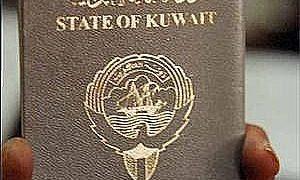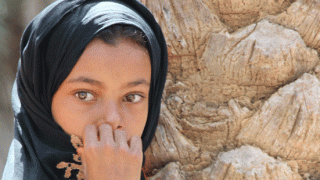At the beginning of Oct. 2013, a Kuwaiti Health Ministry official announced a project aimed at subjecting incoming expatriates to a medical screening to try to detect homosexuals and transsexuals among them. He added that his country would propose this project during the meeting of the Central Committee of the Program on Expat Labor of the Gulf Cooperation Council (GCC) scheduled for Nov. 11, 2013 in Oman. The official did not reveal the nature of the procedures or the technical devices that would be used in GCC airports for the rapid screening of homosexuals and transsexuals entering the country. For their part, media and organizations concerned with the rights of migrants failed to obtain additional information about the size of the issue this decision would attempt to address, or on the types of tests expatriates would be subjected to before receiving a “fit for work” certificate.
Double jeopardy
The news stirred local and foreign reactions. Amnesty International called for dropping the idea of subjecting expatriates to medical tests to determine their sexual orientation, considering this a “violation of the fundamental human right to private life.” GCC human rights organizations reiterated the positions of Amnesty International, advocacy networks for migrants’ rights and other international human rights organizations.
However, the prevailing opinion in the Gulf media remained that of those who welcome the project. According to Kuwaiti MPs, this project is a sign of “good efforts to eliminate such phenomena alien to our society and that do not comply with our religion and traditions.” Supporters of the project in Arab Gulf countries underestimated the importance of human rights objections to discrimination against expatriates, including their screening to determine their sexual orientation. “We are not concerned with the actions of human rights activists; they are not our guardians and the ones in charge of protecting values and morals,” said a Kuwaiti MP.
Between domestic and foreign positions, Gulf officials might choose prudence and refer the whole matter to a commission for examination. If the officials convening on Nov. 11, 2013, agree to impose a medical screening, the implementation of this decision would take a long time as it would need to overcome the technical, administrative and political obstacles that usually impede the implementation of collective decisions in GCC countries.
The enthusiasm of those welcoming the Kuwaiti proposal in the GCC countries did not come as a surprise for observers of the Gulf political situation. This proposal combines two sources of moral panic in the Gulf: foreign labor and sex. In Gulf countries, as in other countries, the spread of moral panic among people becomes easy when they are convinced that there are serious dangers threatening the stability of their social life and their prevailing values. Moral panic gains even more acceptance and is more widespread among people when these risks lie in values, behaviors and ideas “imported” by strangers. Consequently, the authority shall have two increasingly important roles: determining imminent dangers to society that [the authority] is capable of warding off and safeguarding the continuity and stability of values and traditions.
Foreign labor inspires fears
For more than four decades, ever since the oil boom, local media have not ceased to detail the risks posed by foreign labor on the cohesion of Gulf societies, culture, traditions and even future generations. In this respect, no distinction may be made between the media directly owned by governments or those funded and sponsored by the government. Moreover, academics, intellectuals and prominent figures in political opposition forces contributed to the dissemination of panic over foreign labor. Detailing the risk of a Bangladeshi female domestic worker on the upbringing of our children and their culture was not as costly as criticizing the ruling families who agreed to establish foreign military bases on the region’s territories and waters. For instance, at the beginning of the 1970s, a false rumor spread claiming that the thousands of Korean workers recruited to work in the construction of new ports and ship repair sites in the United Arab Emirates and Bahrain had been part of an American “rapid intervention” team. No one cared about the fact that the US, whose warships were found in Gulf waters and ports, did not need the help of Korean workers to protect its interests. Competent local authorities did not seek to deny this rumor, even after the deportation of a large numbers of [Korean] workers following a strike they had staged requesting the improvement of their working conditions.
Over the past 40 years, the nature of foreign labor “risks” on Arab Gulf countries has. Most of these risks are tackled when talking about foreign immigration to the Gulf, yet each of them has its own audience and season. It is difficult to count all the risks addressed by journalists, politicians and academics involved in migrant labor to the Gulf, but here are some of the main headlines. These risks may include strategic/military risks, as was the case with the Korean workers in the mid-1970s. They may also involve the risk of “ethical decay contagion” — through the practices and behaviors of foreign expatriates — on the values of Gulf societies. There may also be cultural/educational risks related to identity, as was the case of female expatriates from Southeast Asia coming in to work as domestic workers or in nurseries. Not a week goes by without the media publishing stories about children memorizing songs in Bengali or Tamil, the languages of their nannies. These stories are brought up to condemn the role of foreign nannies in the upbringing of the next generation in the Gulf. Furthermore, the risks may be to Arabic itself. Articles are published and TV programs broadcasted bemoaning the deterioration oft the Arabic language due to its misuse by expatriates. Finally, the risks may be financial (i.e. the loss of investment opportunities as a result of the remittances of billions of dollars sent from expatriates to their families).
Demonization of foreign labor
Police reports of raids on brothels or the uncovering of networks or individuals engaged in prostitution are the topic of fixed and highly-read columns in Gulf newspapers. These raids are no longer limited to big cities but are taking place in Mecca itself in Hajj and Umrah seasons. In all cases, those arrested, prosecuted or deported from the country are from the poor foreign labor category and newspapers do not hesitate to publish their photos. In the wake of each raid campaign, preachers voice their resentment in mosques and in the media condemning the ethical decay caused by foreign labor.
Those who read Gulf newspapers and hear Friday sermons may not be blamed for thinking that prostitution in the Gulf is an imported profession spread only among poor foreigners. However, before the oil boom, major cities in the Gulf such as Dubai and Manama had areas renowned for local prostitutes of both sexes.
It is easy to link prostitution and foreign labor and, by demonizing foreign workers, authorities use them as a scapegoat that may be easily exploited and sacrificed as needed. Media reporting statements issued by Ministries of Interior regarding raids on prostitution dens and prosecution and deportation of a few hundred arrested female and male foreign workers is something that satisfies the leaders of protests against what they see as manifestations of moral decay in their countries. On the other hand, data and reports confirm that the authorities are keen to carry out their duties to protect and safeguard public morals against the "contamination" caused by foreign workers.
Subjecting expatriates coming in to work in the Gulf to a medical screening to detect sexual orientation will add a new tool for the management of moral panic in GCC countries. It will increase the ability of governmental authorities and business owners to blackmail poor immigrants. Within this scope, it seems quite surprising that human rights activists in the Gulf have not taken any actions to thwart the adoption of this new decision violating human rights in the region and have contented themselves with reiterating the position sof international human rights organizations and advocacy networks for migrants’ rights.
Translated by Al-Monitor




